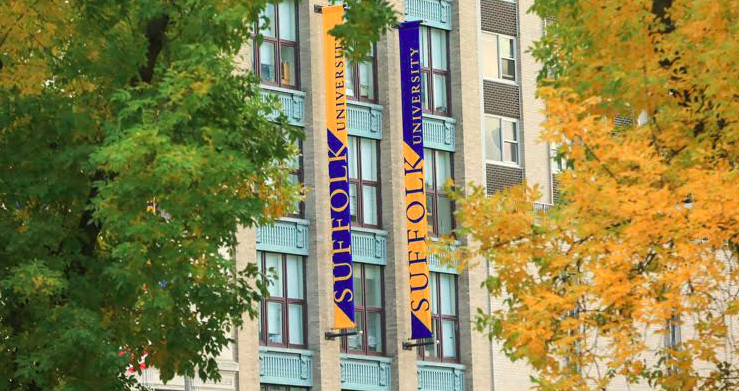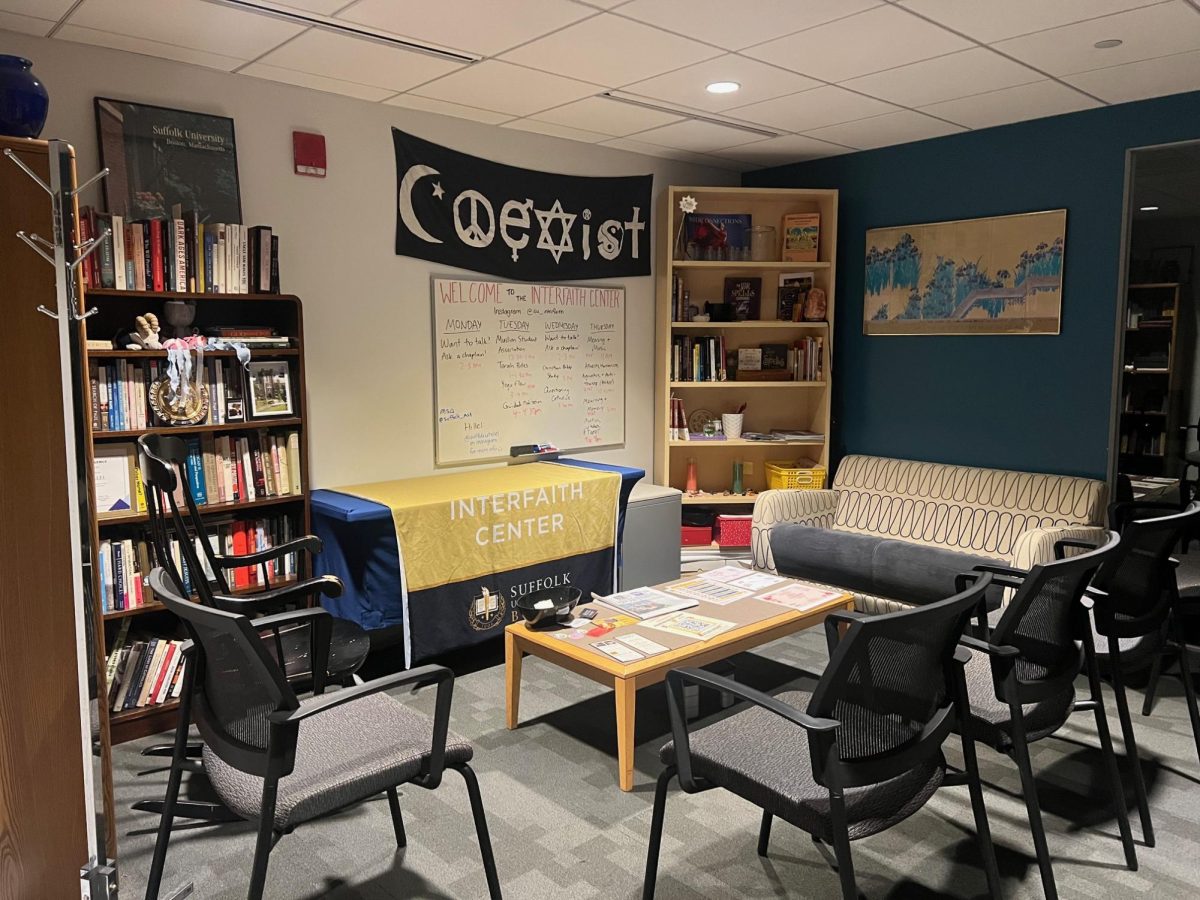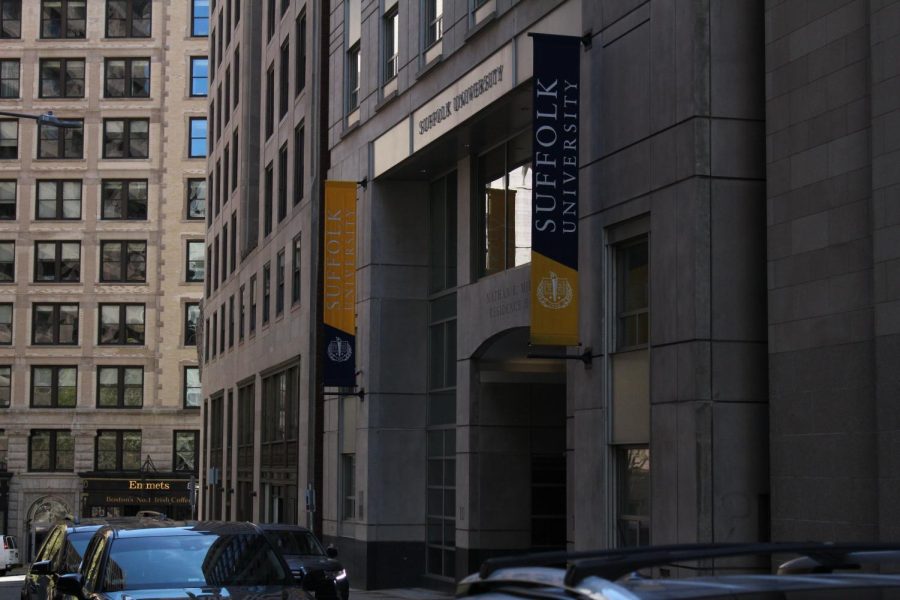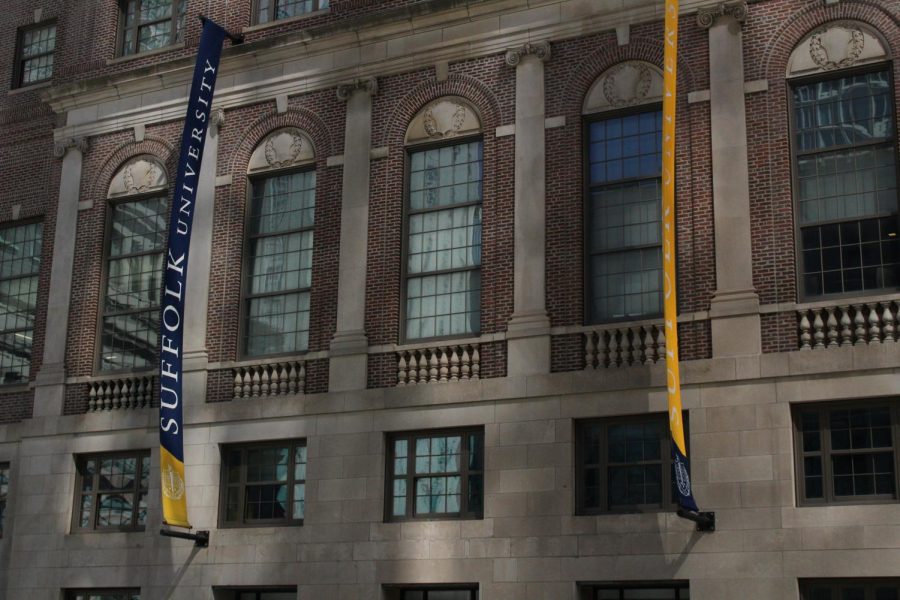Despite a year of negative press and wrenching change, Suffolk University appears to be becoming a destination institution.
In their inaugural ranking of U.S. Colleges, media titan Wall Street Journal placed Suffolk University in the top 25 percent of more than 1,000 colleges and universities.
Suffolk was ranked 256 nationally, tied with Adelphi University, Hanover College, University of South Carolina-Columbia and Washington State University. The university outranked many prestigious institutions with far larger enrollments and endowments; University of Vermont came in at 271, with University of Massachusetts Boston back at 427 and Emerson College at 453. The list, released last Tuesday, was compiled by the WSJ and Times Higher Education.
The honor comes amid two other prestigious rankings. Suffolk University is listed as one of the “Best National Universities” in U.S. News & World Report’s 2017 list, which also noted that the university held the fifth largest international student population on its campus. In early September, Suffolk also ranked in the “Best 381 Colleges” for the 2017 list by the Princeton Review, according to the university’s website.
“These rankings capture the essence of a Suffolk University education,” said Acting President Marisa Kelly in an official press release from the university. “Our students not only work closely with faculty and peers in the classroom and labs, but they also gain valuable life experience from internships, community service and mentoring relationships with our partners in Boston and across the globe.”
Freshman finance major Surina Sud said in an interview with The Suffolk Journal on Tuesday night that seeing Suffolk in the top 25 percent of schools makes her proud to be a student at an accredited university.
“I didn’t really tell people where I was going for college because I didn’t want to tell people,” said Sud. “But now I can proudly say Suffolk University. This rating has given me a new sense of confidence.”
Greg Gatlin, the university spokesperson, explained more about the ranking methodology and what it means for the university.
“The most interesting part of the Wall Street Journal’s rankings is that they’ve upended traditional methodology by looking at the process from a different perspective,” said Gatlin in an interview with The Journal on Tuesday afternoon. “They ranked these institutions based on what matters most to students, and, in many ways, what matters to Suffolk.”
For freshman biochemistry major Adelyn Ragucci, she said that it makes her proud that Suffolk has ranked so highly among other top universities.
“My high school was so competitive,” said Ragucci. “Often, my friends and I wouldn’t share what schools we were applying to because if it wasn’t an ivy league, it wasn’t enough.”
Ragucci also said that she found it interesting that the university still had a great reputation despite the media frenzy over Suffolk’s administration last semester.
Suffolk fared especially well in engagement – the university was ranked highly with regards to the relationships formed between its faculty and students. Career preparation, an important factor for most when choosing a college, was equally as impressive, with more than 75 percent of Suffolk alumni interviewed stating that they felt adequately prepared for the working world.
As for freshman marketing major Amanda Roy, these types of lists were important to her during her college application process.
“Ratings were a big factor for me when picking a college,” said Roy.
Over the years, various college ranking services have employed different methods of seeing how well an institution of higher learning measures up. For their rankings, the WSJ reached out to more than 100,000 students across the nation, asking questions about student involvement, atmosphere, return on investment, and job placement. The difference with the new Wall Street Journal rankings, Gatlin said, is that it asks the right people the right questions.
“[The surveys used for the rankings] asked about the quality of the education that alumni and students received. They included questions about students’ experiences with their professors, how graduates fared in the job market. We’re excited that the Journal is taking into consideration the things that we do well.”
The Princeton Review also included the university among the select group of schools listed as “Best Northeastern” in the annual college guide’s web feature “Region by Region” and features Suffolk as a “Green College.”
“We try not to put too much stock in rankings,” said Gatlin.
Contributor: Morgan Hume





















shivam chaudhary • May 21, 2017 at 12:33 pm
Thank you very much for your important and very helpful information.As I’m looking for study abroad so,I think this article will be going helpful for me.And also, I wish that you will post many articles related to this.Again thank yu very much.
Regards,
Shivam Choudhary
http://www.upgradecareer.com